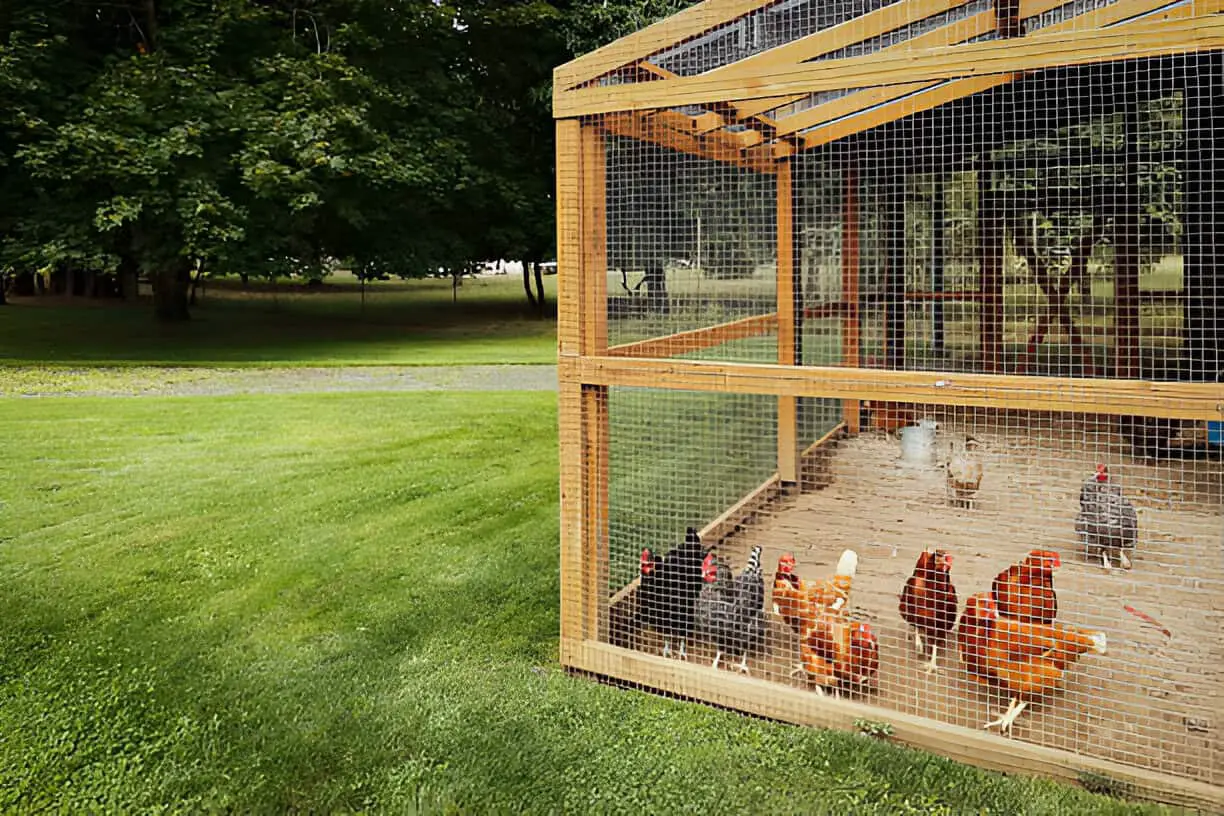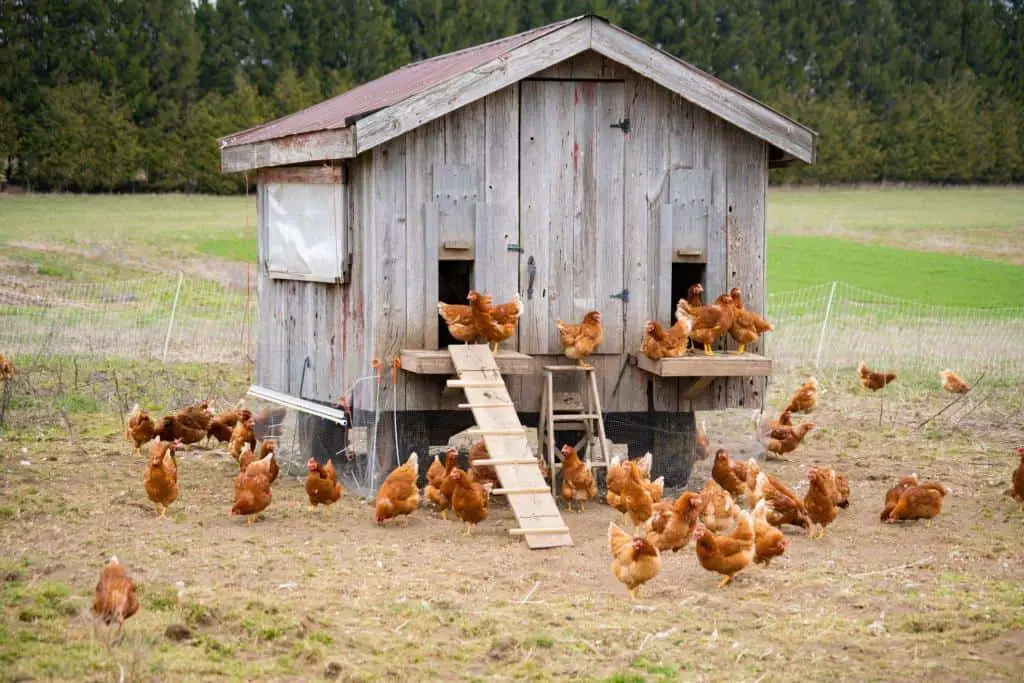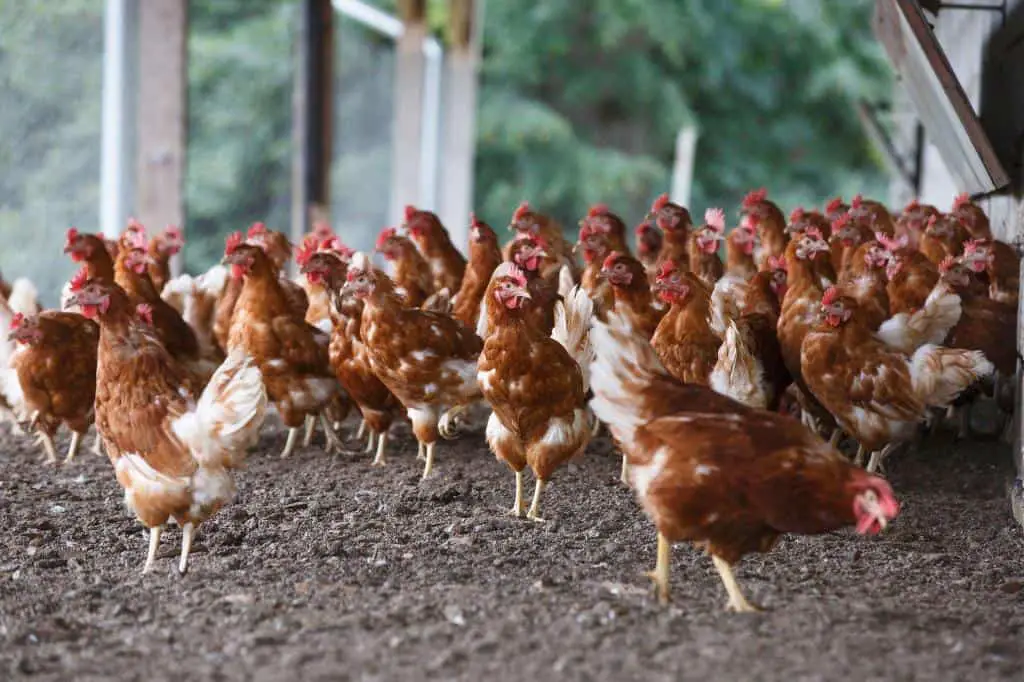How Long Can Your Chicken Stay in the Coop? Understanding Coop Time Limits

As a chicken owner, one of the most important decisions you’ll face is how much time your chickens should spend in their coop each day. While it’s tempting to keep them inside for safety or convenience, the balance between keeping them enclosed and letting them roam freely is essential for their well-being.
Chickens have specific needs when it comes to space, exercise, and socialization, all of which are affected by how much time they spend in the coop.
Have you ever wondered if keeping chickens cooped up all day could impact their health or egg production? The truth is, chickens need more than just food and water—they require plenty of outdoor time to engage in natural behaviors like foraging and dust bathing. But how long can they stay inside without it affecting them? Keep reading to find out what’s best for your flock’s health and happiness.
By reading this article, you’ll learn the ideal balance of time chickens should spend in the coop versus outdoors. We’ll cover the factors that influence this decision, the risks of keeping chickens confined too long, and how to ensure they’re getting the physical and mental stimulation they need. This information is crucial for maintaining a happy, healthy flock.
The Lowdown on Coop Life

Coops are more than just a roof over their heads; they’re the chickens’ bedroom, bathroom, and sometimes, dining room all rolled into one. While coops are essential for keeping chickens safe from predators, bad weather, and harsh conditions, they aren’t meant to be full-time prisons.
Chickens, just like us, thrive on variety, sunlight, and a little bit of adventure. Staying cooped up—pun intended—for too long can lead to stress, boredom, and even health issues.
How Long Should Chickens Stay in the Coop?
Now, let’s get straight to the point: chickens shouldn’t be cooped up 24/7 unless there’s a good reason. Think of the coop as their bedroom—great for sleeping and laying eggs, but not a place you’d want to hang out in all day.
Ideally, chickens should spend their nights in the coop and their days out in the yard, scratching, pecking, and doing all the things that make a chicken’s heart sing.
Here’s a quick breakdown of coop time guidelines:Coop Time Reasonable Duration Ideal Conditions Nighttime 8-10 hours (overnight) Secure, dark, well-ventilated Daytime (bad weather) Up to 24 hours (occasionally) Spacious, with food, water, and some entertainment Regular Daytime Minimal (1-2 hours if necessary) Free-range access or secure outdoor run
When It’s Okay to Keep Them Inside

There are days when keeping the chickens in the coop is not just okay, but necessary. Heavy rain, snowstorms, extreme cold, or predator sightings are all valid reasons to keep the ladies inside. However, even in these cases, the coop should offer enough space, perches, food, and water to keep them comfortable.
Think of it as a rainy day indoors—you wouldn’t want to be stuck in a closet, would you?
You might also have days where letting them out just isn’t practical, like when you’re away or dealing with a particularly persistent predator. In these cases, consider an indoor entertainment upgrade—a hanging cabbage, a flock block, or even a few new perches can make a world of difference. Chickens are curious creatures, and keeping their minds busy can help fend off boredom.
Why Chickens Need Time Outside
Chickens are natural foragers, explorers, and all-around busybodies. Keeping them inside for too long can lead to a host of problems, from pecking and feather-pulling to full-blown aggression.
Think of outdoor time as nature’s enrichment program for your flock. It gives them the space to spread their wings (literally), soak up some vitamin D, and indulge their instincts.
Sunlight plays a vital role in their health, helping them absorb nutrients like calcium for strong eggshells and keeping their immune systems in top shape. Fresh air and a bit of exercise also help maintain their overall well-being, preventing obesity and other health issues that can crop up when they’re too sedentary.
Also check: Letting Chickens Free Range for the First Time
Free-Ranging vs. A Secure Run
If you’re worried about predators or simply want a little more control over where your chickens roam, a secure run can offer the best of both worlds. A well-designed run lets them scratch and peck without the risks that come with full free-ranging. Cover it with mesh to keep hawks at bay, and ensure the fencing is dug deep to thwart any digging predators.
Free-ranging chicken, on the other hand, gives your chickens the ultimate freedom. It’s like letting a kid loose in a candy store—the excitement, the endless opportunities! But it does come with risks, so only opt for this if you’re confident in your local predator situation and have a safe environment for your flock.
The Bottom Line
So, can chickens stay in the coop all day? Sure, occasionally. But it’s not a lifestyle that benefits them in the long run. A happy, healthy chicken is one that gets to greet the sun each day, chase a few bugs, and kick up some dirt. Whether it’s in a free-range setting or a secure run, the key is to let them live a life that’s as close to their natural habits as possible.
At the end of the day, think of your coop as your chickens’ safe haven, not their prison. Give them the freedom to roam, and you’ll have a flock that’s not just surviving, but thriving.
So next time you’re tempted to leave them in, remember—a little sunshine and a scratch in the dirt can go a long way. Keep those coop doors open, and let your feathered friends explore the great (and sometimes not-so-great) outdoors.






